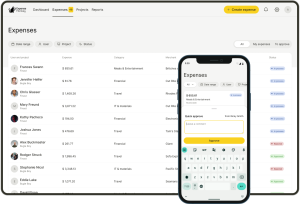Insurance is a way of protection against financial loss. It’s a form of financial risk management, primarily utilized to mitigate the risk of an unpredictable or contingent future loss. Insurance is a legal agreement or contract between an insurer and a policyholder (you). The insurer promises to pay the policyholder a sum of money in the event of a loss.
Insurance is commonly used to protect the insured party from losses due to natural disasters like floods, earthquakes, hurricanes and fires. Insurance also pays a person who has been injured in a motor vehicle accident, such as a DUI accident. Insurance also pays for losses from acts of terrorism like airline crashes, for example.
Many people, when shopping for insurance, wonder how much they’ll need. In fact, you don’t really need insurance for anything at all, unless you want to get your car loan or rent an apartment. When shopping for insurance, it is best to get an estimate of the expected losses from two major events: theft and fire. If your car is relatively expensive, and the value is high, you will pay a higher amount for insurance than someone with a more inexpensive vehicle. This is because insurance companies assume that vehicles that are expensive to repair will be stolen.
A car insurance policy typically provides coverage for physical damage and personal injury resulting from an accident. The insured pays a premium every month to the insurance company. The cost of the premium depends on several factors, including age and gender of the driver, driving record, location and kind of vehicle driven. Other factors that influence the cost of insurance are the type of coverage offered, the amount of coverage provided, the deductible (the amount that the insured pays up front before the insurance company begins paying benefits) and whether the insured has made any claims in the recent past. Each of these factors can have significant impacts on the amount of the monthly premium.
Life insurance is a contract between the policyholder and the insurer that pays a benefit to the named beneficiary if the policyholder dies. In exchange for paying a monthly premium, the insured is required to make regular payments, which are used for expenses that are not covered by the policy. Life insurance provides coverage for dependents such as a spouse and children, and it may also cover a beneficiary if the policyholder is no longer able to care for them. Most life insurance policies are renewable, and premium amounts may change over time based on change in circumstances or health conditions of the insured.
If a vehicle is damaged in an accident, either intentionally or unintentionally, the insurance contract usually covers the cost to repair the vehicle, minus whatever deductible was paid by the insured. This coverage is called a loss of use coverage, and it may be required under certain circumstances such as a divorce or a death in the family. Damage that occurs to a vehicle that is not covered by a comprehensive or collision policy is called a theft, and is covered by a separate insurance policy. Theft insurance protects car owners from lawsuits arising from damage caused by theft.












More Stories
Your Smart Home is Talking to Your Insurer: Navigating IoT, Data, and Privacy
The Insurance Puzzle: Protecting Your Remote Work and Digital Nomad Life
Insurance for Your Renewable Energy Project: A Guide to Protecting Your Investment